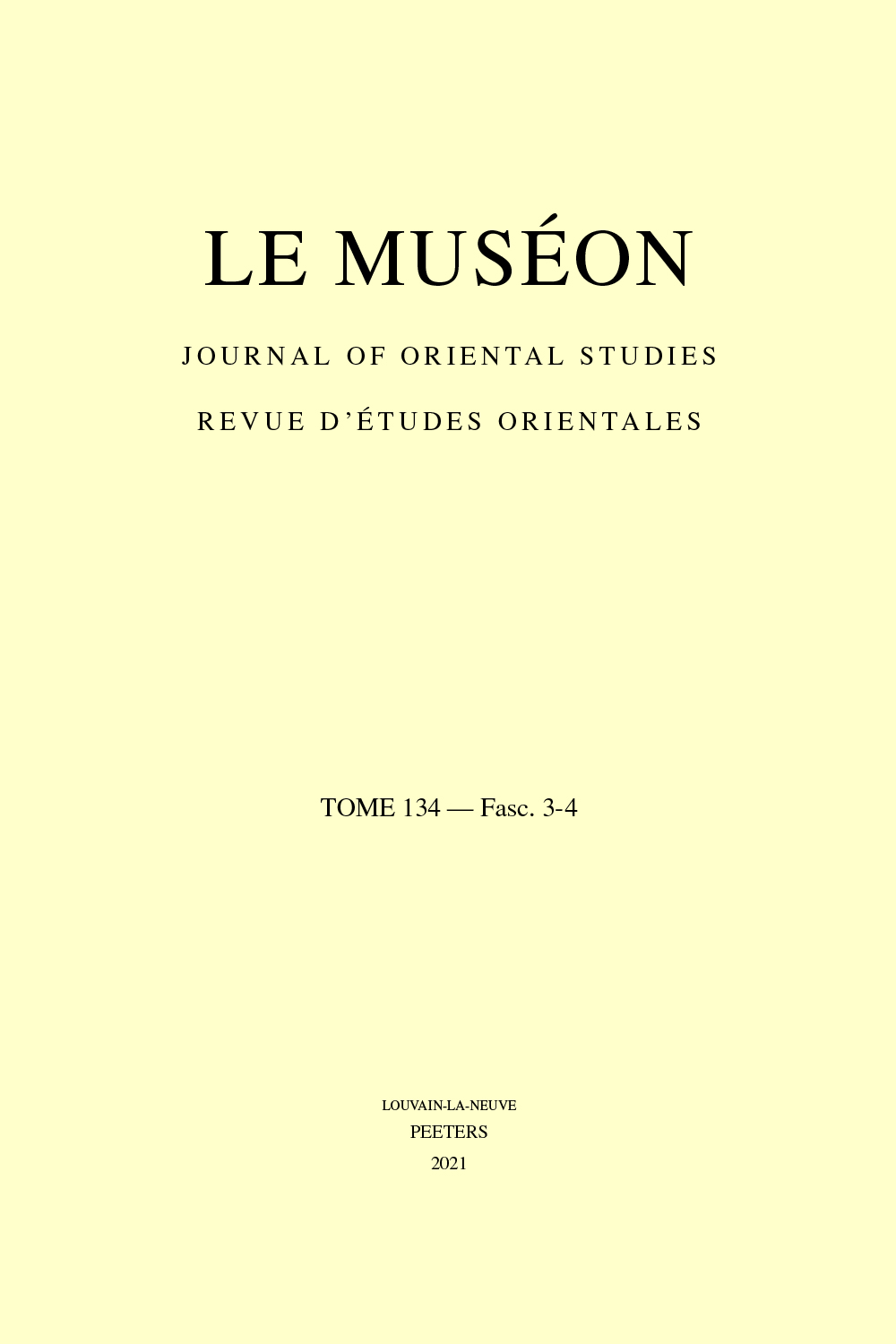 previous article in this issue previous article in this issue | next article in this issue  |

Preview first page |
Document Details : Title: Plotinus Syriacus? Subtitle: La doctrine néoplatonicienne de l'âme dans le dialogue Érostrophos Author(s): JURASZ, Izabela Journal: Le Muséon Volume: 132 Issue: 3-4 Date: 2019 Pages: 329-398 DOI: 10.2143/MUS.132.3.3287187 Abstract : The Syriac text known as 'Herostrophos' has not been the object of many studies. It is a Syriac translation of the pseudo-Platonic dialogue on the soul, dating to the 6th century. Because of the unusual vocabulary of this text, researchers have advanced several propositions concerning its philosophical inspiration, Aristotelian or Stoic. The article gives a first French translation of 'Herostrophos'. The commentary that accompanies it proposes to situate it in relation to the Platonic tradition, especially in relation to the form of Platonism represented by Plotinus and Porphyry. The dialogue is devoted to interpreting the expression of the Timaeus 35a that the soul is divisible in the bodies. This expression was very important for Plotinus who insists on the unity of the soul and its divisibility in the bodies. The author of the 'Herostrophos' appeals to other elements: to Aristotelian theses on the immobility of the soul and to the Neopythagorean doctrine of soul-harmony. These two elements are well known to neoplatonist philosophers. There is also an original trait – a detailed comparison between soul and fire in the sun. The identification of these themes shows the extent of the reception of Greek philosophy in the Syriac language. |
|


